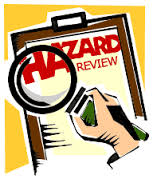 WorkSafeBC inspectors may suggest that they are just trying to “get the facts,” but every question they ask is designed to get the evidence they need. You should always be on your toes and follow the military maxim, “Never volunteer.” Inspectors are like TV interviewers. They’re trying to get the information they need, and they know that you are unlikely to volunteer anything that will be damaging to your case. As a result, they resort to indirect questions. Furthermore, they often phrase these questions carefully, trying to make it look as if you are being given a chance to exonerate yourself, or justify questionable procedures.
WorkSafeBC inspectors may suggest that they are just trying to “get the facts,” but every question they ask is designed to get the evidence they need. You should always be on your toes and follow the military maxim, “Never volunteer.” Inspectors are like TV interviewers. They’re trying to get the information they need, and they know that you are unlikely to volunteer anything that will be damaging to your case. As a result, they resort to indirect questions. Furthermore, they often phrase these questions carefully, trying to make it look as if you are being given a chance to exonerate yourself, or justify questionable procedures.
Dealing with safety inspectors requires balance and common sense. Never lose sight of the fact that they are professionals, and that they are looking for information that may not make you or your company look good. On the other hand, inspectors are doing an important job, helping to protect the health and safety of your employees.
Keep the following guidelines in mind:
• Never be rude. Even when you think that you should not cooperate, be polite, but firm. Personal animosity will only make a bad situation worse.
• Be cautious. Never volunteer anything. Never grasp at an opportunity to put yourself or your employer in a good light. Why not? Think about it. How often have you listened to people talk themselves out of a job by responding too carelessly to your carefully crafted questions? The same could be true in this case. Choose your words carefully.
• If in doubt, you can refuse to answer a question. In most cases, you can ultimately be compelled to respond, but many times the matter will not be pursued. If it is, you’ll have time in the interim to consult with counsel as to the best approach.
Don’t
• Demonstrate any activities or operations for the inspector
• Volunteer any information
• Volunteer any records not requested
• Make any admissions of guilt
Do
• Designate one qualified, knowledgeable person to be the liaison with the inspectors, and train the person accordingly
• Examine a warrant carefully
• Duplicate the inspector’s tests and actions
• Indicate trade secret area
• Prepare, with the help of counsel, a standard operating procedure for handling inspectors
• Conduct your own safety audits regularly, making sure that this important “quality control” element is part of your compliance program
